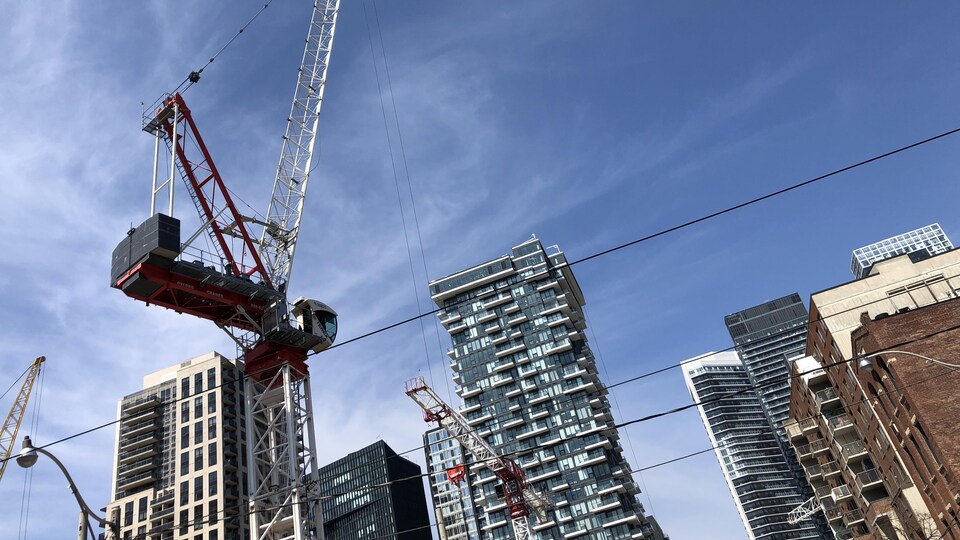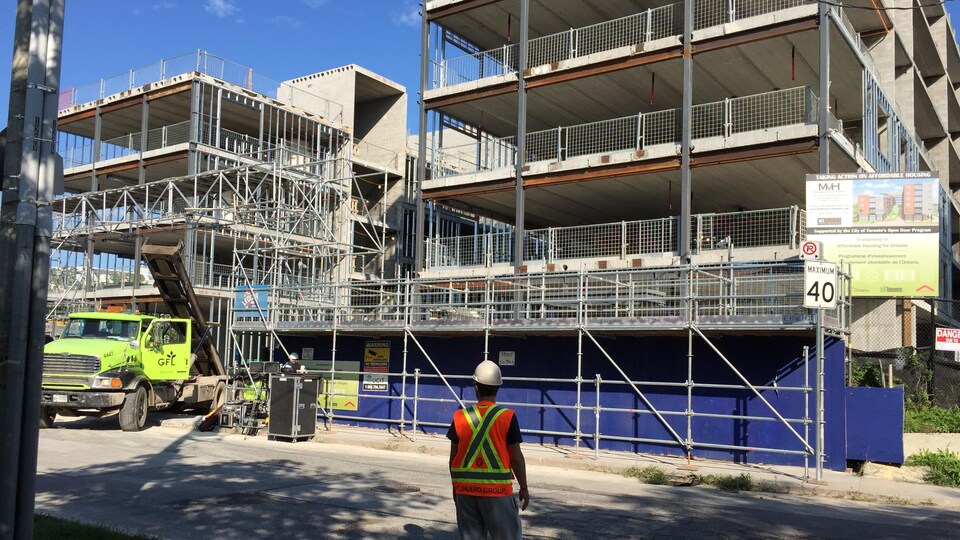A wave of strikes could delay construction of residences in the province next week, the Residential Construction Council of Ontario (RESCON) warns. The organization said it had informed its members that it expected layoffs in the residential sector.
We hope that agreements will be reached by the end of the week and labor disruptions will be avoided, but we do not hope that all remaining collective agreements will be resolved.said Andrew Pariser, Vice President of RESCON.
A possible labor disruption will come as the province, specifically the Greater Toronto Area, faces a crisis in affordable housing and rising real estate prices due to tight supply and strong demand.
Collective agreements for unionized construction workers typically last three years. Many expire on April 30. Andrew Pariser said this time around there was added pressure to get deals in part because of issues caused by the pandemic.
There is inflation, but there are also supply chain problems as the pandemic continueshe said.
Multiple strikes
There are at least 30 trades working in residential construction. Some of them have new agreements already, but others may walk out on Monday.
According to Mr. Pariser, other trades in the construction industry could also strike, as many of them have collective agreements that will end at the end of the month. This can affect timelines for housing projects.
Local 183 of the Workers ’International Union of North America (LIUNA), one of the largest construction unions in the province, represent approximately 58,000 workers in the Greater Toronto Area. On Thursday, this branch negotiated more than 15 collective agreements in the residential construction sector alone, according to Jason Ottey, director of government relations and communications.
The local union said on its website on Friday that while some settlements have been reached and others have not yet gone through arbitration, at least one trade has been in a position of legal strike since May 1.
We stand up for our members and work to get the best deal possible for them and their familiessaid Mr. Ottey via email.
Widespread inflation
Negotiations are still ongoing, but the main issue in the negotiations has to do with wages, especially the rising cost of living, explains Robert Whillans, a lawyer who specializes in construction labor law.
One thing that stimulates the requests coming from the union side is the recognition of the role they have played over the past two years in advancing the construction industry. These people showed up and put their health at risk. They think their salary should reflect that.
A report in December from the Center for Future Work shows that wages in the industry are more stagnant, although construction is one of the few sectors that remained productive throughout the pandemic.
The report was commissioned by the Ontario Provincial Building and Construction Trades Council. It shows that the value of permits for residential projects will rise by 19% in 2020, reaching an all -time high of more than $ 30 billion.
Also according to the report, citing data from Statistics Canada, construction wages in Ontario have risen just 1.9% over the past five years, compared to 3.9% for the economy as a whole. Ontario.
Another factor in the negotiations could also be the shortage of construction workers, Mr. Whillans explained. So far, however, there are massive projects underway. It will require skilled labor to make them.
Tarion, a consumer protection agency for homeowners in Ontario, declined to comment on the possibility of strikes. But on its website, the agency said the strikes could affect a new homeowner in two ways: by delaying the initial construction and delivery of their home, but also when the home is already acquired, can it will delay jobs and repairs.
The nonprofit, however, says there are more than 50,000 new homes built in the province each year, a large number of them will not be affected by strikes.
Mr. Pariser said that in parts of the Greater Toronto Area, Ontario’s Labor Relations Act allows residential construction strikes to last approximately six weeks before being forced to return to work and submit any unpaid unpaid dispute in binding arbitration. This means that any layoffs that begin in the next few days could end in mid -June.
Source: Radio-Canada

